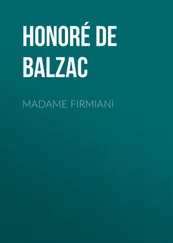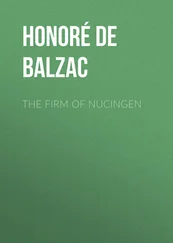Honoré Balzac - Scenes from a Courtesan's Life
Здесь есть возможность читать онлайн «Honoré Balzac - Scenes from a Courtesan's Life» — ознакомительный отрывок электронной книги совершенно бесплатно, а после прочтения отрывка купить полную версию. В некоторых случаях можно слушать аудио, скачать через торрент в формате fb2 и присутствует краткое содержание. Издательство: Иностранный паблик, Жанр: literature_19, foreign_antique, foreign_prose, на английском языке. Описание произведения, (предисловие) а так же отзывы посетителей доступны на портале библиотеки ЛибКат.
- Название:Scenes from a Courtesan's Life
- Автор:
- Издательство:Иностранный паблик
- Жанр:
- Год:неизвестен
- ISBN:нет данных
- Рейтинг книги:4 / 5. Голосов: 1
-
Избранное:Добавить в избранное
- Отзывы:
-
Ваша оценка:
- 80
- 1
- 2
- 3
- 4
- 5
Scenes from a Courtesan's Life: краткое содержание, описание и аннотация
Предлагаем к чтению аннотацию, описание, краткое содержание или предисловие (зависит от того, что написал сам автор книги «Scenes from a Courtesan's Life»). Если вы не нашли необходимую информацию о книге — напишите в комментариях, мы постараемся отыскать её.
Scenes from a Courtesan's Life — читать онлайн ознакомительный отрывок
Ниже представлен текст книги, разбитый по страницам. Система сохранения места последней прочитанной страницы, позволяет с удобством читать онлайн бесплатно книгу «Scenes from a Courtesan's Life», без необходимости каждый раз заново искать на чём Вы остановились. Поставьте закладку, и сможете в любой момент перейти на страницу, на которой закончили чтение.
Интервал:
Закладка:
A strange coincidence! At this moment a young man, half-dead of hunger and fatigue, who had come on foot from the department of Vaucluse – a nephew of Pere Canquoelle’s in search of his uncle, was entering Paris through the Barriere de l’Italie. In the day-dreams of the family, ignorant of this uncle’s fate, Peyrade had supplied the text for many hopes; he was supposed to have returned from India with millions! Stimulated by these fireside romances, this grand-nephew, named Theodore, had started on a voyage round the world in quest of this eccentric uncle.
After enjoying for some hours the joys of paternity, Peyrade, his hair washed and dyed – for his powder was a disguise – dressed in a stout, coarse, blue frock-coat buttoned up to the chin, and a black cloak, shod in strong, thick-soled boots, furnished himself with a private card and walked slowly along the Avenue Gabriel, where Contenson, dressed as an old costermonger woman, met him in front of the gardens of the Elysee-Bourbon.
“Monsieur de Saint-Germain,” said Contenson, giving his old chief the name he was officially known by, “you have put me in the way of making five hundred pieces (francs); but what I came here for was to tell you that that damned Baron, before he gave me the shiners, had been to ask questions at the house (the Prefecture of Police).”
“I shall want you, no doubt,” replied Peyrade. “Look up numbers 7, 10, and 21; we can employ those men without any one finding it out, either at the Police Ministry or at the Prefecture.”
Contenson went back to a post near the carriage in which Monsieur de Nucingen was waiting for Peyrade.
“I am Monsieur de Saint-Germain,” said Peyrade to the Baron, raising himself to look over the carriage door.
“Ver’ goot; get in mit me,” replied the Baron, ordering the coachman to go on slowly to the Arc de l’Etoile.
“You have been to the Prefecture of Police, Monsieur le Baron? That was not fair. Might I ask what you said to M. le Prefet, and what he said in reply?” asked Peyrade.
“Before I should gif fife hundert francs to a filain like Contenson, I vant to know if he had earned dem. I simply said to the Prefet of Police dat I vant to employ ein agent named Peyrate to go abroat in a delicate matter, an’ should I trust him – unlimited! – The Prefet telt me you vas a very clefer man an’ ver’ honest man. An’ dat vas everything.”
“And now that you have learned my true name, Monsieur le Baron, will you tell me what it is you want?”
When the Baron had given a long and copious explanation, in his hideous Polish-Jew dialect, of his meeting with Esther and the cry of the man behind the carriage, and his vain efforts, he ended by relating what had occurred at his house the night before, Lucien’s involuntary smile, and the opinion expressed by Bianchon and some other young dandies that there must be some acquaintance between him and the unknown fair.
“Listen to me, Monsieur le Baron; you must, in the first instance, place ten thousand francs in my hands, on account for expenses; for, to you, this is a matter of life or death; and as your life is a business-manufactory, nothing must be left undone to find this woman for you. Oh, you are caught! – ”
“Ja, I am caught!”
“If more money is wanted, Baron, I will let you know; put your trust in me,” said Peyrade. “I am not a spy, as you perhaps imagine. In 1807 I was Commissioner-General of Police at Antwerp; and now that Louis XVIII. is dead, I may tell you in confidence that for seven years I was the chief of his counter-police. So there is no beating me down. You must understand, Monsieur le Baron, that it is impossible to make any estimate of the cost of each man’s conscience before going into the details of such an affair. Be quite easy; I shall succeed. Do not fancy that you can satisfy me with a sum of money; I want something for my reward – ”
“So long as dat is not a kingtom!” said the Baron.
“It is less than nothing to you.”
“Den I am your man.”
“You know the Kellers?”
“Oh! ver’ well.”
“Francois Keller is the Comte de Gondreville’s son-in-law, and the Comte de Gondreville and his son-in-law dined with you yesterday.”
“Who der teufel tolt you dat?” cried the Baron. “Dat vill be Georche; he is always a gossip.” Peyrade smiled, and the banker at once formed strange suspicions of his man-servant.
“The Comte de Gondreville is quite in a position to obtain me a place I covet at the Prefecture of Police; within forty-eight hours the prefet will have notice that such a place is to be created,” said Peyrade in continuation. “Ask for it for me; get the Comte de Gondreville to interest himself in the matter with some degree of warmth – and you will thus repay me for the service I am about to do you. I ask your word only; for, if you fail me, sooner or later you will curse the day you were born – you have Peyrade’s word for that.”
“I gif you mein vort of honor to do vat is possible.”
“If I do no more for you than is possible, it will not be enough.”
“Vell, vell, I vill act qvite frankly.”
“Frankly – that is all I ask,” said Peyrade, “and frankness is the only thing at all new that you and I can offer to each other.”
“Frankly,” echoed the Baron. “Vere shall I put you down.”
“At the corner of the Pont Louis XVI.”
“To the Pont de la Chambre,” said the Baron to the footman at the carriage door.
“Then I am to get dat unknown person,” said the Baron to himself as he drove home.
“What a queer business!” thought Peyrade, going back on foot to the Palais-Royal, where he intended trying to multiply his ten thousand francs by three, to make a little fortune for Lydie. “Here I am required to look into the private concerns of a very young man who has bewitched my little girl by a glance. He is, I suppose, one of those men who have an eye for a woman,” said he to himself, using an expression of a language of his own, in which his observations, or Corentin’s, were summed up in words that were anything rather than classical, but, for that very reason, energetic and picturesque.
The Baron de Nucingen, when he went in, was an altered man; he astonished his household and his wife by showing them a face full of life and color, so cheerful did he feel.
“Our shareholders had better look out for themselves,” said du Tillet to Rastignac.
They were all at tea, in Delphine de Nucingen’s boudoir, having come in from the opera.
“Ja,” said the Baron, smiling; “I feel ver’ much dat I shall do some business.”
“Then you have seen the fair being?” asked Madame de Nucingen.
“No,” said he; “I have only hoped to see her.”
“Do men ever love their wives so?” cried Madame de Nucingen, feeling, or affecting to feel, a little jealous.
“When you have got her, you must ask us to sup with her,” said du Tillet to the Baron, “for I am very curious to study the creature who has made you so young as you are.”
“She is a cheff-d’oeufre of creation!” replied the old banker.
“He will be swindled like a boy,” said Rastignac in Delphine’s ear.
“Pooh! he makes quite enough money to – ”
“To give a little back, I suppose,” said du Tillet, interrupting the Baroness.
Nucingen was walking up and down the room as if his legs had the fidgets.
“Now is your time to make him pay your fresh debts,” said Rastignac in the Baroness’ ear.
At this very moment Carlos was leaving the Rue Taitbout full of hope; he had been there to give some last advice to Europe, who was to play the principal part in the farce devised to take in the Baron de Nucingen. He was accompanied as far as the Boulevard by Lucien, who was not at all easy at finding this demon so perfectly disguised that even he had only recognized him by his voice.
Читать дальшеИнтервал:
Закладка:
Похожие книги на «Scenes from a Courtesan's Life»
Представляем Вашему вниманию похожие книги на «Scenes from a Courtesan's Life» списком для выбора. Мы отобрали схожую по названию и смыслу литературу в надежде предоставить читателям больше вариантов отыскать новые, интересные, ещё непрочитанные произведения.
Обсуждение, отзывы о книге «Scenes from a Courtesan's Life» и просто собственные мнения читателей. Оставьте ваши комментарии, напишите, что Вы думаете о произведении, его смысле или главных героях. Укажите что конкретно понравилось, а что нет, и почему Вы так считаете.












